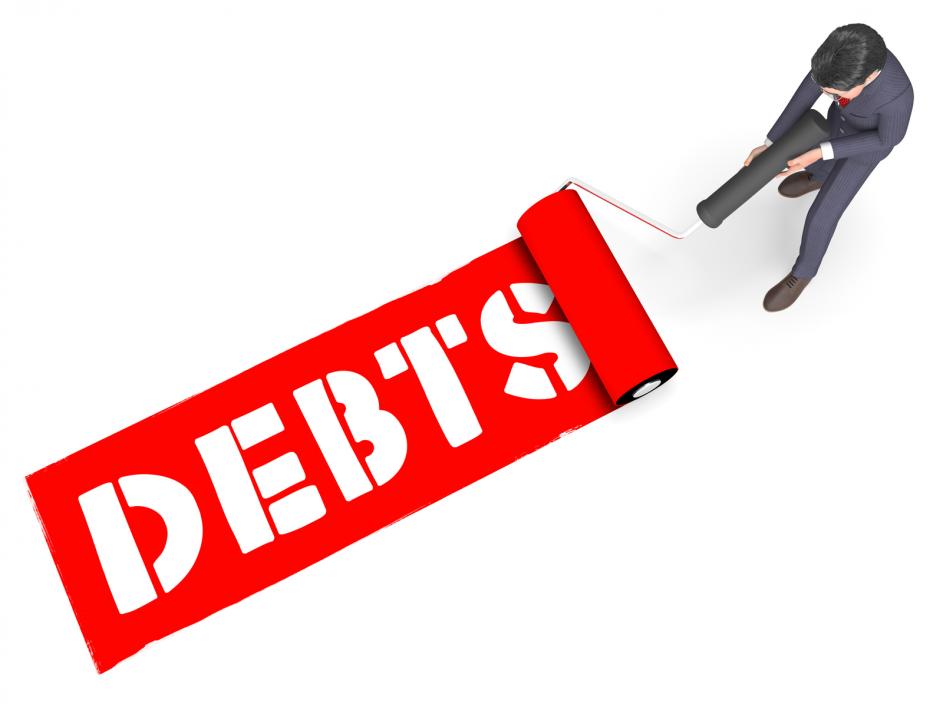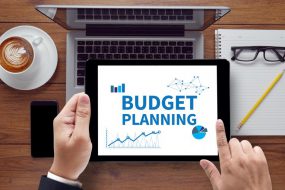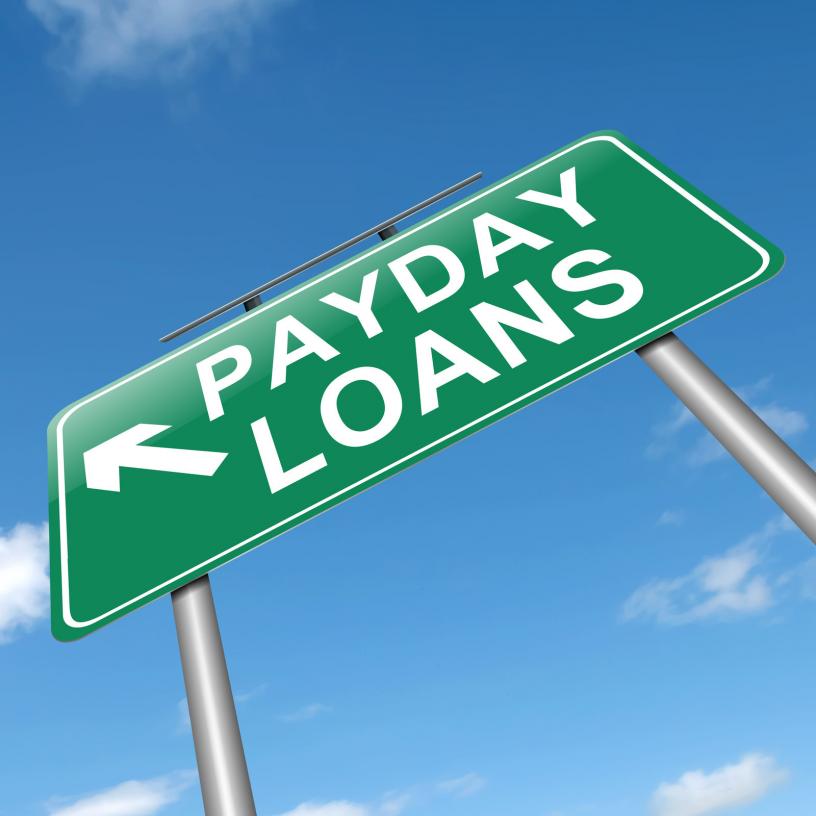
by admin | Bankruptcy, Consumer Proposal
Creditors Can Garnish Your Wages! Learn More about Wage Garnishment in Canada
What’s worse than not having enough money to pay your debt? That’s right, having your wages cut down. Wage garnishment is basically a legal order that allows creditors to get hold of a certain percentage of debtor’s monthly income until that individual pays back the debt in full.
Wage garnishment in Canada can really have a negative impact on you and your family. A smaller paycheck does not only diminish your motivation but can also pose a risk of even more severe financial crisis for you.
If the court issues an order of wage garnishment to your employer, they will have to comply with the order and withhold a certain amount of your pay. However, first, the creditor has to go through a process before starting to garnish their wages.
How It Works
For wage garnishment in Canada, the creditor will have to acquire a judgment from the court. This judgment recognizes that the creditor does have a case against you. Then, the creditor will need to be granted seizure summons, which will allow them to look for your assets to seize. In case you have no physical assets that can be legally seized, the creditor will serve a seizure notice to your employer and begin garnishing your wages. Your wages will continue to be garnished until your whole debt has been cleared.
Wage garnishment in Canada most commonly occurs among people who do not have any equity or assets worthy of being seized for the recovery of debts.
Rules in Canada
Both federal and provincial laws are present for wage garnishment in Canada that administrate what kind of assets a creditor can seize and what percentage of a paycheck can be garnished. Typically, there are similar laws all over Canada. The only exceptions are New Brunswick and B.C.
Creditors are not at all allowed to garnish wages in New Brunswick, whereas, home appliances and items cannot be seized in B.C.
Some provinces do not allow garnishment of more than 30% of the paycheck.
Also, creditors cannot get a hold of your line of credit as it doesn’t have the actual cash for them to take, but they will be able to seize cash straight from your bank account.
Your Options
If you ever find yourself in this dreadful situation, you have a few options.
- You can negotiate with your creditor to settle on a new payment plan and request them to stop your wage garnishment.
- You can seek the help of the court to get your wage garnishment reduced on the basis of financial hardship.
- You can simply quit your job. No paychecks mean no wage garnishment in Canada.
- You can file a consumer proposal.
- You can file for personal bankruptcy.
The two best options to stop wage garnishment in Canada are filing for bankruptcy or filing a consumer proposal. Although both these options will put a stop to the proceeding with garnishment, they can significantly affect your credit score and your overall financial situation.

by admin | Bankruptcy, Consumer Proposal, Credit Counseling
Love can really do go blind no matter angle you look at it. Though you do all to achieve financial stability, love prevails and eat you. The problem that you are facing is you are marrying your true love with the debts he/ she have. If you do not what to deal with his or her financial debts, both of you must work together to overcome her or his mistakes with finance in the past. Since that marriage is the union of two people that have the love for each other, you can both work with this burden. Nevertheless, that does not mean that you have to give all the wealth that you get when you are single.
If you are marrying in the name of love and her or his debt cannot be avoided, better to read the texts below so you will not find your marriage in a poor state.
- Know your liabilities with the debt of your spouse
Many are mistaken with the joining of assets and liabilities in marriage. It is not true that you will join all your financing and assets in a marriage. In contradiction, the assets and liabilities will only be shared when both of you are legally married. The assets that both of you acquire before the marriage will remain in your name. It will be left untouched even that you are married to her or him.
- Join credit or not
Before you made an account titled joint credit, you have to know the time your assets will be pulled by the debt of your wife or husband. Make sure that your finance in when you’re single will not be part of the joint account. Since you are married, any assets that you acquired during the period of marriage will be a property of both of you.
- Past financial responsibility
Before you say yes in the church or court, make sure that you know the financial part of your partner. Not you will leave him or her with the burden of debt, it called conservative. You just want to be prepared and since you are madly and deeply in love. Death does us part is the only thing that will separate you and not the marriage with debt.
- Wait a little time
Before you imprison yourself in a marriage that deals with the debt of your husband or wife, wait more time to decide. No matter how you love her or him and you are convinced that she or he is the one, it is not good that others see that marriage is the solution to pay a debt.
- Have a legal agreement
If you do not wish to take the burden of debt by your wife or husband but you are really on to marrying her or him, do an agreement. There is a prenuptial agreement that you can have to assure that you will not be responsible for the past debt of your spouse.
Marriage is a sacred joining of many people, and they want that the best person is standing with her at the altar. However, if you really love him and her, you marry in the name of love and debt is not part of it. Take the information above to be your guide.

by admin | Uncategorized
When it comes to budgeting and managing your money, it is important to make sure that you keep track of everything that goes along with, it. From the different transactions you make to various business expenditures that you decide upon day in and day out, it must be accompanied by a billing statement or a purchase order receipt or any evidence of your recent expenses. It is important that you always have that evidence to serve as a back-up in case of emergency situations that require the presentation of an official receipt. Having an official copy of expenditures made can also give you a way of managing your finances and resources by keeping track of their monthly uses, therefore enabling you to prepare a budget plan for the future coming months being able to lessen a number of expenditures along with it.
How to Budget?
Carefully planning and implementing a living realistic budget can prove to be one of the most the effective tools in your personal financial management plan. See below for a list of ways to help you budget your money.
- Identify Your Expenses. Making sure to get a foothold of what your monthly expenses are is the primary step in building a budgeting plan. Start out by pointing out your fixed monthly costs like rent payments, credit card balance payments, and business or personal loan payments, and add them to your variable monthly costs also know as your daily-living costs including food, entertainment, utilities, and clothing expenses. You can also include the rare and infrequent expenses you make like the vehicle insurance and car repair; taxes; special events then divide them for 12 months to get the average monthly expense cost. Be sure to list all your expenses use your bill and bank statements for exact reference leaving out any gaps.
- Identify your Income. Your pay stubs will come in handy when you try to identify your tax-paid, take-home monthly income. Note that individuals who get paid every 2 weeks need to multiply the pay by 26 and dividing it by 12 to get your net monthly salary. You must include all secondary sources of your income be it commissions, a second job, or alimony in it.
- Mark the things you want to save for. By setting realistic and detailed expected monthly goals, you will be able to measure the success of your budgeting plan and be inspired to keep on moving forward with it.
- Setting the Budget. Get a total of your income and expenses, and figure out if you need to cut some of your expenses or try to get an increase in your salary making the budget plan work for you. Set up a budget plan sheet to be able to track everything you do, from your successes and your slip-ups, and be able to work around it.
Budgeting monthly expenses are a great way to take control of your financial status and your business enabling you to allocate and carefully plan out where and how you intend to make use of your expenses in a cost-effective plan that could prevent you from encountering certain financial setbacks like bankruptcy in the future.

by admin | Consumer Proposal, Credit Counseling, Credit Repair
Let’s face it – money can be a devil at times and a savior at others. We all are told to acknowledge the importance of adequate money management throughout our lives to avoid the problems a lack of finance brings. That’s very crucial, without a doubt. However, some people might face a time they are in dire need of money, despite the sufficient money management they thought they were conducting.
There are plenty of loans available in the market to help you take care of your financial needs. However, almost all of them only allow borrowing a large amount and also have high-interest rates. What about when you need only a little amount of money? Well, that’s where payday loans come in.
A payday loan is basically a small loan that is short-term. You can acquire a payday loan to pay your urgent bills or whatever, and then you will be required to pay back the money. The name ‘payday’ is to suggest that you are supposed to return the money as soon as you get the paycheck on your next payday.
The payday loan industry has seen significant growth in recent years, but it has also received some serious criticism for various reasons. Nevertheless, payday loans are becoming more popular and they have their pros and cons. Let’s take a look at them.
Pros
Payday loans can be really useful.
When you need urgent financial assistance, you may find payday loans as the most suitable option. You can use the amount from payday loans to pay for due bills or any other expenditure that needs to be incurred urgently. You can return that small amount soon enough with your next salary. No matter how good you are at money management, some unforeseen circumstances in life may leave you with no other choice.
They are very easy to get.
The popularity of payday loans also has to do with their convenience. Almost anyone with a steady income, state ID, and a checking account can qualify for payday loans. You can expect to receive the amount within an hour or few hours of application and that can be considered as a huge plus. Some online companies also offer payday loans.
Even people with poor credit scores can get payday loans.
All the conventional loans require you to have a good credit score. That’s one thing that restricts people in times of an urgent need when their money management turns out not so effective. With payday loans, that’s not a problem as the lenders do not generally check the credit score of the applicant.
Cons
The terms of payday loans favor lenders.
Anyone who fails to comprehend the terms and agreement of payday loans can find themselves at a major disadvantage if something goes wrong and they are not able to pay back in time.
People often fail to meet the repayment terms.
The APR (Annual Percentage Rate) of interest on credit card loans is usually under 20 percent. In the case of payday loans, the interest averages to 300 percent when evaluated as APR. This means that payday loans are not a long-term solution and you must strictly avoid borrowing a bigger amount than what is absolutely needed.
It all comes down to personal preference. People who are confident of their money management and can easily meet the repayment terms can benefit from payday loans. Otherwise, other options should be explored.

by admin | Consumer Proposal, Credit Counseling, Credit Repair, Debt Management

Remember the month, when you were barely able to make ends meet with your budget? We all agree that creating a monthly budget is necessary and helps us in many ways. However, this monthly budget may not save you from facing a month, when you would need extra money to pay your expenses. So what really puts a budget out of action?
While this may include the factors like heavy property bills, the heavy tax on water bills or some uncertain situations like poor health. With these variable expenses, sometimes, it becomes difficult to faithfully follow the budget. Hence the experts suggest that a good budget always keeps provision for these uncertain situations so that whenever any of such expense comes due, you got the money ready for them.
Still, this approach might not work for you as it would be difficult for you to take out money for uncertain or additional expenses from a monthly income, therefore; let us have a look at some other factors that might help you in making a good functional budget.
Writing down your income, expenses, and spending
The foremost step is to list down your income and expenses. This will help you in managing your money and tracking the spending behavior so that you may fulfill your goals. While it would be easy to list down the income that is expected to be received over time, it may be difficult to write down the expense, as it might require some close attention.
The track of spending may include every little item such as candy, coffee and cigarettes etc. The tracking should continue for at least a month or two as you pass every day at home, at play or at work.
Set appropriate saving goals
Considering what you want in your life, what dreams you want to achieve, you may like to set some short-term, medium-term or the long-term goals. The short-term goals may include saving up for some tour. A Medium term may include saving up for a car and the long term may include saving up for your retirement or your child’s education.
It is important to decide these goals with a realistic approach and once done, it’s time to figure out ways to attain them within the framework of our income and expenses. Since goals keep changing, you may also need to revise or re-evaluate your budgeting.
Make a saving plan
A habit of creating a budget itself opens up many options to make a proper saving plan. Since budgeting gives you a clear idea of personal spending, you may know always where you need to spend and where to save. However, if you are short on savings, your priority should be to start an emergency fund so that in the case of uncertain circumstances, your budgeting may not get disrupted.
By following the steps discussed above you may create a good budget for a month that would not only help you in saving some amount but would also help in dealing with uncertain realities.








